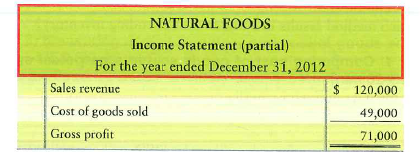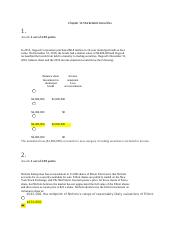
The books of account need to be up-to-date as it is the basis for accounting. The accuracy of bookkeeping determines the accuracy of the accounting process followed by a business. Here, we go over the distinct functions of accounting and bookkeeping, highlighting the unique roles each can play within your business.
When to Hire a Financial Professional
As your small business grows, the financial side of running a company inevitably becomes increasingly complicated. One of the best things you can do to help manage this important facet is to consider hiring an experienced bookkeeper and an accountant. These complementary allies will help keep track of your business expenditures, income, and profits as well as set you up for success once tax time rolls around. If you need an extra hand, you can also work with a team of QuickBooks-certified bookkeepers to help you manage and maintain your books virtually.
What is a bookkeeper?
While 1-800Accountant offers less expensive plans that may be useful for businesses that need only tax advice and quarterly reviews, only its most expensive Enterprise plan comes with bookkeeping services. It can be difficult to gauge the appropriate time to hire an accounting professional or bookkeeper ― or to determine if you need one at all. While many small businesses hire an accountant as a consultant, you have several options for handling financial tasks. Both accounting and bookkeeping play an important financial role in business, there is a difference between the two. Bookkeeping is a direct record of all purchases and sales your business conducts, while accounting is a subjective look at what that data means for your business and cash flow strategies.
What does a bookkeeper do?
A forensic accountant’s job is to investigate, audit, and prove the accuracy of financial documents and dealings. There are opportunities for forensic accountants in many industries, like nonprofit work, government and law-enforcement agencies, law firms, and large corporations. Bookkeeping how to do payroll accounting is a great starting point if you are interested in the field but not fully committed and want to test the waters. You may also be an ideal bookkeeping candidate if you want a good job with a respectable wage and decent security but may not be looking for a long-term career.

- Before joining NerdWallet in 2020, Sally was the editorial director at Fundera, where she built and led a team focused on small-business content and specializing in business financing.
- No add-on services, like tax planning or accrual basis accounting, outside of catch-up bookkeeping.
- Bookkeeping is largely concerned with recordkeeping and data management.
- There are various career paths for accountants (and some for bookkeepers), from working as a forensic accountant to becoming a financial auditor or an enrolled agent.
- Data entry involves entering your business’s transactions into your bookkeeping system.
Despite all this, auditing is a completely different process when compared to bookkeeping. The basic difference between the two lies in the tasks involved and the objective of performing the two activities. https://www.kelleysbookkeeping.com/ In addition, you must be a member of the Association of Certified Fraud Examiners. In most cases, employers want to hire someone with a bachelor’s degree, and a master’s degree may help boost your earnings.
Bookkeepers record daily transactions in a consistent, easy-to-read way. Business News Daily provides resources, advice and product reviews to drive business growth. Our mission is to equip business owners with the knowledge and confidence to make informed decisions.
She has also held editing roles at LearnVest, a personal finance startup, and its parent company, Northwestern Mutual. Accounting consolidates financial information to make it understandable and clear for all stakeholders. It helps businesses to maintain timely and accurate records of their finances. Below, we’ll walk you through three signs it might be time to hire a bookkeeper or an accountant to help you manage your books and plan for the future. Even though it will cost you to hire someone else to manage your books or file your taxes, you may also discover more savings by using a professional. A trained accountant can help you take advantage of deductions you didn’t know about.
We believe everyone should be able to make financial decisions with confidence. Just upload your form 16, claim your deductions and get your acknowledgment number online. You can efile income tax return on your income from salary, house property, https://www.kelleysbookkeeping.com/profit-margin-formula/ capital gains, business & profession and income from other sources. Further you can also file TDS returns, generate Form-16, use our Tax Calculator software, claim HRA, check refund status and generate rent receipts for Income Tax Filing.
They must take 24 hours of continuing education each year to maintain their license. The purpose of accounting is to provide a clear view of financial statements to its users, which includes investors, creditors, employees, and government. Data entry involves entering your business’s transactions into your bookkeeping system.
In the U.S., certified public accountants (CPAs) are accountants who have specific training and education and pass a rigorous exam on business and accounting concepts and regulations. Bookkeepers sometimes do accounting tasks, such as generating financial reports from the accounting software, making journal entries for depreciation and accrued expenses, and more. As an accountant, you must pay attention to figures and financial details, but it is more essential to possess sharp logic skills and big-picture problem-solving abilities.

Bookkeeping is largely concerned with recordkeeping and data management. Bookkeepers make sure the information in the books is accurate and that the books are reconciled each month. Our partners cannot pay us to guarantee favorable reviews of their products or services.
A bookkeeper can efficiently manage transactions, pay bills, and keep your financial records in order. Additionally, integrating a tool like Expensify can automate expense reporting and tracking — reducing the workload for everyone involved. Outsourcing accounting can also free up your time to focus on other aspects of running your business! Plus, you’ll receive valuable insights and financial advice from experienced professionals on achieving business growth and stability in the long run. For example, if a bookkeeper does not pay invoices correctly, handle payroll accurately, or verify expenses, then all other accounting tasks may be harder to execute. Bookkeeping is a series of day-to-day tasks designed to organize, record, and track your business’s financial details.
It’s nearly impossible to be comprehensive here given the sheer number of companies sprouting up every day, but below you’ll find dozens we’ve come across, segmented by core product focus and GTM approach. Senior IC practitioners are likely not the right path in the door for sellers of GenAI accounting and workflow products. 250+ small-business products reviewed and rated by our team of experts.
It’s a key component of the accounting process and can be done as frequently as daily, weekly or monthly. Accurate bookkeeping is vital to filing tax returns and having the financial insights to make sound business decisions. A key part of the accounting process is analyzing financial reports to help you make business decisions. The result is a better understanding of actual profitability and an awareness of cash flow in your business. Accounting turns the information from the general ledger into insights that reveal the bigger picture of the business, and the path the company is progressing on.





